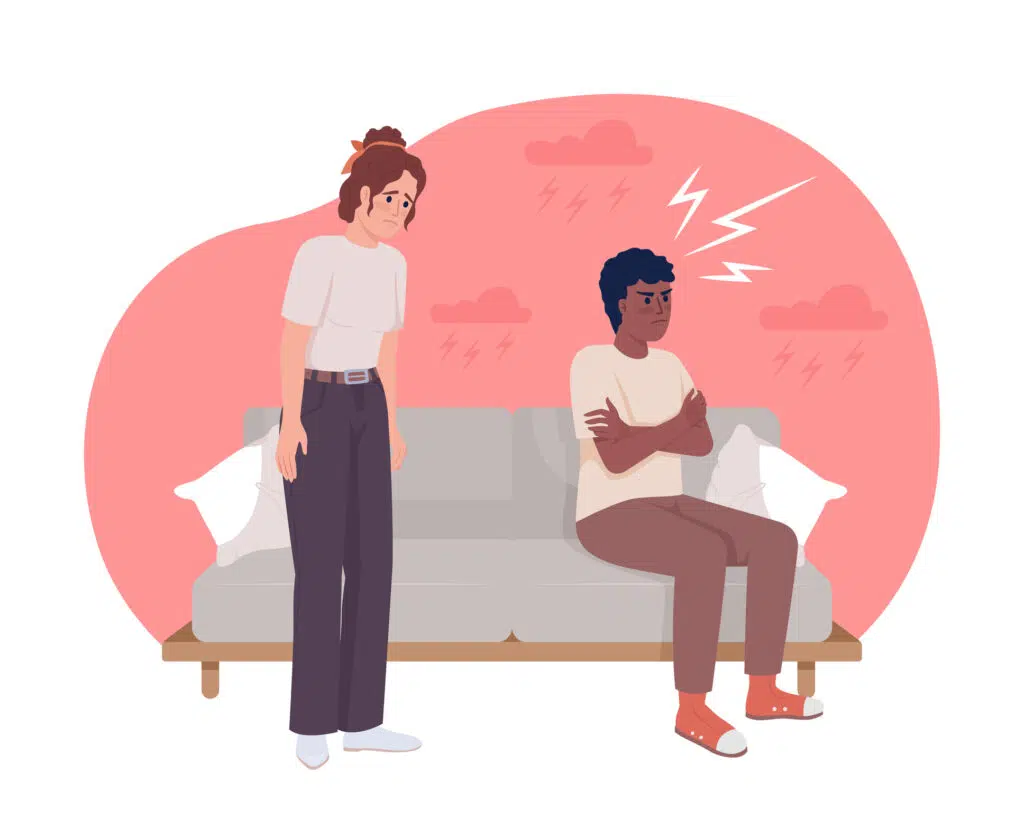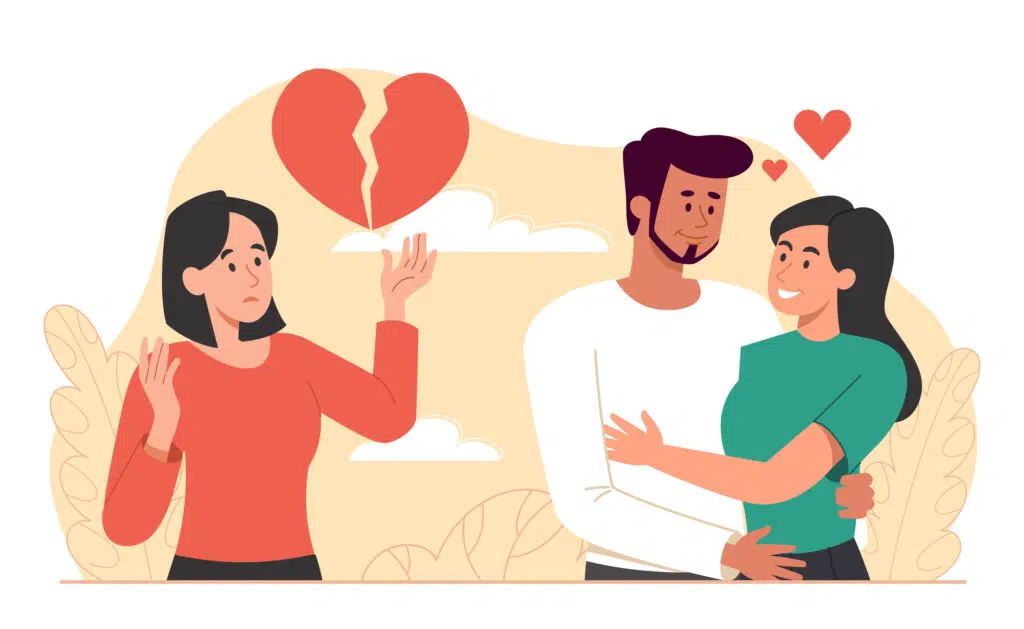How to Get Over Fear of Flying

Overcoming any fear is hard and not something that happens overnight. It takes time and practice. While you can say that flying is safer than driving, that doesn’t help those having a panic attack mid-flight. You’re not alone; fear of flying is common. If you’re afraid to fly, learn to conquer your fear gradually with these expert tips.
What is Fear of Flying?
Essentially, fear of flying is an extreme sense of fear or panic when flying. So, what is the fear of flying called? The technical term is aerophobia, but it’s also known as flying anxiety.
If you experience the following symptoms either before or during a flight, then you may have a fear of flying. Symptoms include:
- Excessive sweating
- Upset stomach
- Nausea and churning stomach
- Dizziness or lightheadedness
- Heart palpitations
- Shortness of breath
- Hyperventilating
Dr. Nicolas Fernandez, Ph.D., licensed clinical psychologist from New York City, says that a “fear of flying typically comes from having a negative experience of anxiety in the context of air travel. This can manifest in a number of ways, including:
- Having a panic attack or severe anxiety associated with air travel
- Experiencing fear or anxiety during turbulence
- Traveling with an anxious parent or caregiver as a child or adolescent
Sometimes, fear of flying comes from never experiencing air travel at all and just from a belief that it is dangerous.”
People with aerophobia may feel extreme fear and panic about different elements of flying, like take-off, turbulence, or landing. Statistics show that air travel is the safest form of travel. In the US, air travel is thousands of times safer than the most dangerous form of travel – motorcycle riding. But when you fear flying, you can’t reason with your brain. You may even know that your fear is irrational, but you find you can’t escape the anxiety and fear. Sometimes the thought or anticipation of flying is as intense as the flight itself.
How Common is Fear of Flying?
Fear of flying is much more common than you might think, affecting 25 million adults in the US. or about 1 in 10 of the population. It’s also possible to fly for years without any trouble and develop a fear of flying at some point. Some people with a fear of flying avoid air travel altogether.
6 Psychologist-Approved Tips: How to Get Over Fear of Flying
Figuring out how to get over fear of flying is a process that you need to break down into manageable steps. It’s about finding what works for you and how you can alleviate the anxiety around air travel.
- Identify Your Triggers
What is it about flying that fuels your anxiety? It could be take-off and landing specifically. Or turbulence, small spaces, or illness on the plane.
“First and foremost, it is important and helpful to develop an understanding of how anxiety works, both cognitively in the mind and physiologically in the body,” says Dr. Nicolas Fernandez.
Anxiety and fear are complex. Your body and mind can do all sorts of things in response to anxiety. By starting to understand how anxiety works and what kind of situations trigger those feelings, you can start to set the foundation for learning to deal with a fear of flying.
- Learn About Flight Safety
Airplanes make strange and loud noises that can be unnerving, to say the least. But planes are built to handle emergencies and are equipped for a ton of different situations. While fear of flying can make it hard to rationalize flight safety, it may help to ease some worry by learning more about airplanes, especially safety features.
- Face Your Fear (in Small Doses)
Exposure to feared objects or situations in a safe environment helps to reduce fear and lower avoidance. It’s important that the exposure is controlled and safe. In some cases, it’s difficult to recreate the fear, especially with flying. Virtual reality exposure therapy can help you to experience a flight while your feet are firmly on the ground. Equipment, lights, sounds, and smells can make the experience feel all too real while remaining in a safe and controlled environment. The idea is that you face your fear in small doses and eventually feel more comfortable with the fear experience.
- Always Start Small
Fear and anxiety are on a spectrum. Triggers and those situations that make you fearful or anxious are individual. So, starting small can look different.
Dr. Nicolas Fernandez says, “I find it helpful for people to learn skills for managing their own subjective experience of anxiety, for example, using:
- Diaphragmatic breathing
- Panoramic viewing
- Progressive muscle relaxation
I find it helpful to work with clients to develop a specific plan for how to approach flying confidently and manage anxiety symptoms if and when they arise.”
However you intend on tackling a fear of flying, try to break down the journey into more manageable steps. The aim is to take a gentle step forward to fly more comfortably. This could include some of the following:
- Just visiting an airport and absorbing the sights and smells
- Taking a very short flight
- Sitting on a stationary plane
- Use Technology To Your Advantage
With all the advancements in Virtual Reality and 360 cameras, overcoming the fear of flying using technology is more beneficial than ever. In the past, people only had their imagination to use for flying exposure therapy before having to step foot on a flight.
Now, we have Fear of Flying Virtual Reality Software to immerse clients onto a plane in the safety of a therapist’s office, or a client’s home. Using Virtual Reality Exposure Therapy, or VRET, people can gain the confidence and experience of a full flight before buying their plane ticket.
- Seek Professional Help
So, at what point should you speak to a professional?
“I recommend people seek professional help for fear of flying if they notice any behaviors that indicate avoidance of flying, for example:
- Exclusively relying on alternative modes of transportation
- Avoiding going on trips that require air travel
- This avoidance contributes to some level of impairment in functioning or limits the ability to live life fully.
Many people also find professional help to be useful if they are currently flying with elevated levels of anxiety or mental distress or relying on alcohol or other substances to feel calm,” says Dr. Nicolas Fernandez.
Therapy for fear of flying can include a number of techniques and approaches like:
How to Overcome Fear of Flying with The Thriving Center of Psychology
A fear of flying doesn’t have to completely halt your ability to travel the world or visit friends and family abroad. There are tools, methods, and therapies that can help you to manage fear and anxiety, despite it currently feeling uncontrollable.
To take the mystery out of seeking help for fear of flying, Dr. Nicolas Fernandez breaks down what treatment can involve.
An initial session may include working with a therapist to understand the history of your fear of flying as well as the specific symptoms of anxiety that manifest in association with flying. Sessions then typically focus on:
- Providing education about the nature of how anxiety works and why it persists in particular situations.
- Developing skills to identify anxiety symptoms and regulate the physiological anxiety response.
- Reframing unhelpful thinking about flying.
- Through the usage of biofeedback technology, assessing which situations are most anxiety-provoking as it relates to Fear of Flying.
- Developing a structured plan to incrementally work towards flying confidently.
- Gradual exposure using VR, imagination, or real-life situations
Treatment for fear of flying typically consists of weekly therapy sessions. Many clients report positive results in as little as 4-12 sessions, depending upon the severity of fear of flying, motivation for change, and anticipated future air travel.
As you can see, overcoming a fear of flying is a process that takes time. By going through the steps of learning, developing ways to manage anxiety, and really delving into your thinking, you can move towards a more comfortable flying experience.
The Thriving Center of Psychology uses the latest technology and methods to help you address your fear in a safe and controlled environment. If you’re avoiding flying or the thought of getting on a plane fills you with anxiety, schedule an appointment or call the offices today. You can meet with your therapist in person or through video teletherapy. A licensed therapist can help give you the tools to manage your fear and anxiety so that you can still experience all the opportunities flying has to offer.

How to Move On After a Friendship Breakup
Friendship breakups can sting just as much as a romantic breakup. After all, you’re experiencing a loss of shared history and an understanding of each other that can leave you feeling lonely and isolated. Not all friendships are forever, but moving on from the loss of a friendship does take time and some self-compassion.

Signs You’re in a Toxic Relationship
A toxic relationship can chip away at your well-being and happiness. Toxic partners can be manipulative and charming, making it difficult to recognize the signs that you’re in a toxic relationship. You deserve to be in a supportive and healthy relationship.

10 Common Marriage Reconciliation Mistakes to Avoid After Infidelity
Infidelity can leave couples devastated. If you’ve been affected by infidelity and want to salvage your relationship, rebuild trust, or make a tough decision, keep reading for 10 common reconciliation mistakes to avoid after infidelity.

Survey: 72% of Americans are Stressing About the Upcoming Presidential Election
Political viewpoints in the U.S. have always been contentious, but is the impact of politics in the United States making it difficult for people to live their everyday lives? With some anticipating another brutal and long campaign season ahead of the upcoming 2024 presidential election, nearly half of Americans say politics is negatively impacting their mental health.




